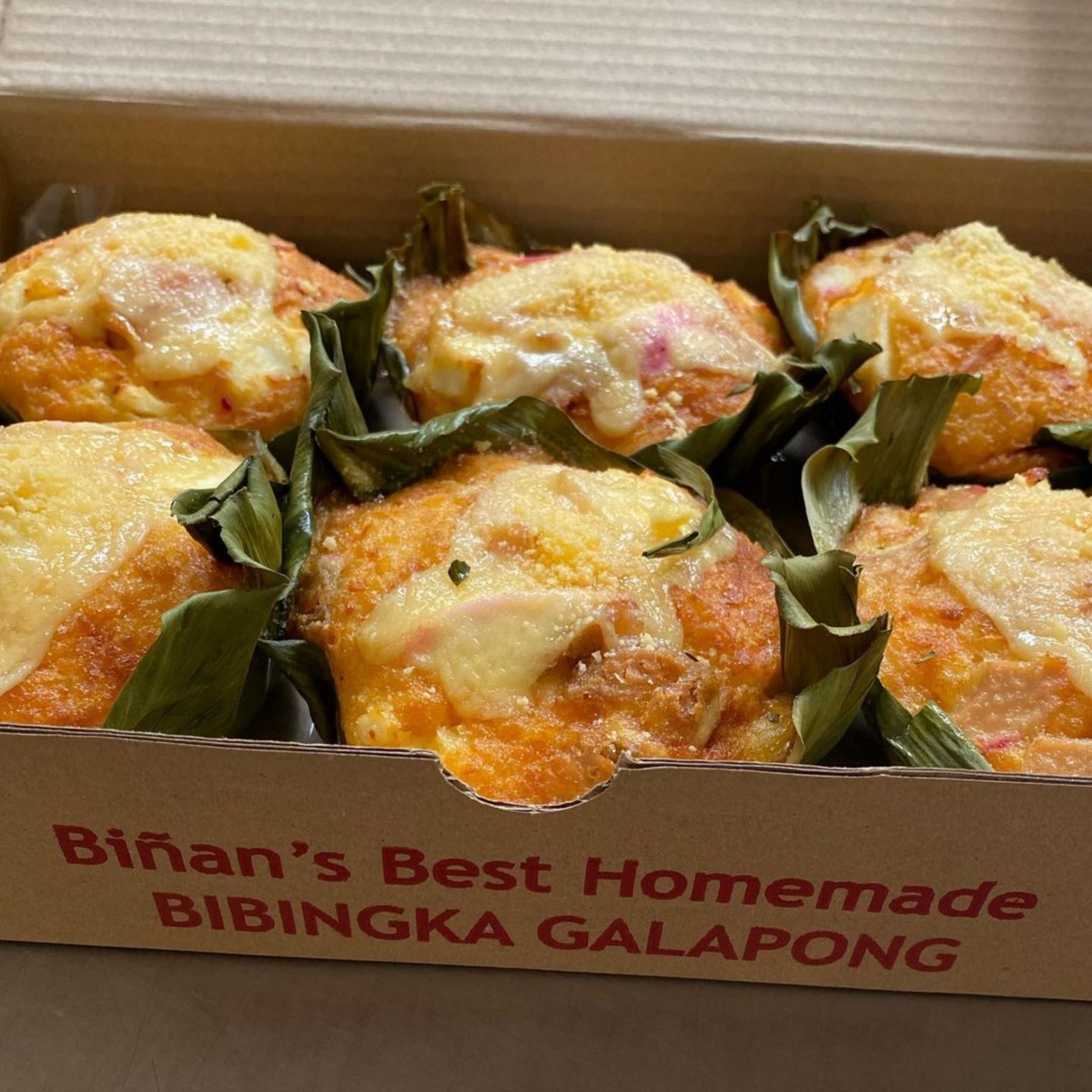Table of Contents
- Introduction
- Historical Background
- Ingredients and Preparation
- Types of Bibingka in Laguna
- Local Influences
- Significance in Celebrations
- 1. Laguna’s Festivals
- 2. Christmas and Seasonal Celebrations
- 3. Community Fiestas
- Popular Accompaniments
- Local Artisans and Shops
- Tourism and Culinary Tourism
- Challenges and Innovations
- Conclusion
Introduction
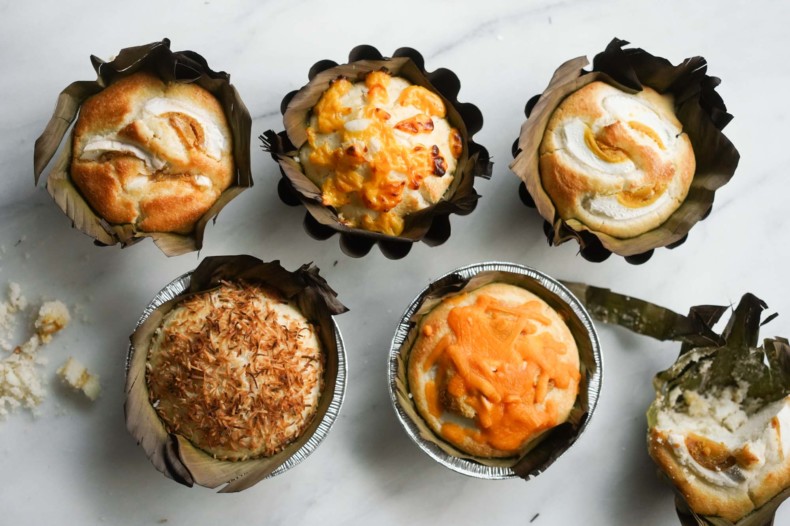
Nestled in the heart of the Philippines, Laguna is a province characterized by its picturesque landscapes, cultural richness, and culinary treasures. At the center of Laguna’s culinary identity is Bibingka, a traditional Filipino rice cake that has transcended generations, becoming a symbol of tradition and celebration. This culinary exploration delves into the historical tapestry of Laguna’s Bibingka, uncovering the layers of its origins, evolution, and cultural significance.
Beyond its culinary aspects, Bibingka holds a significant place in Laguna’s cultural identity. It is more than just a dish; it is a symbol of celebration woven into the fabric of weddings, religious festivities, and communal gatherings. The act of making and sharing Bibingka has transformed into a communal tradition, fostering unity and joy among the people of Laguna.
Historical Background
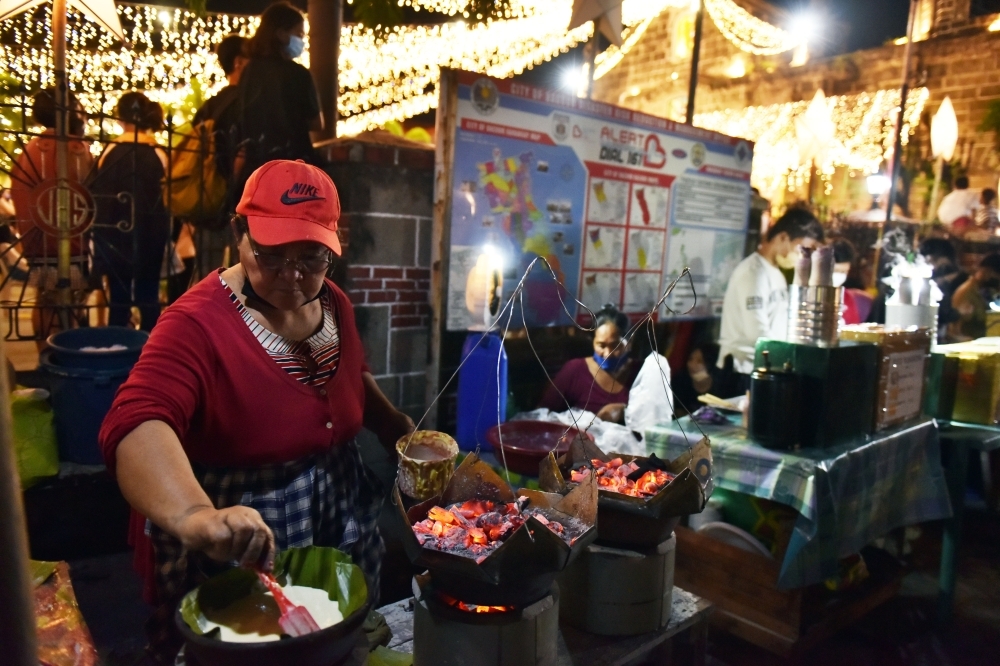
To truly appreciate the delectable allure of Laguna’s Bibingka, one must embark on a journey through the historical tapestry that has shaped this iconic Filipino treat. Rooted in the rich soil of indigenous practices and interwoven with the threads of colonial influence, the history of Bibingka echoes the complex narrative of the Philippine archipelago. The very essence of Bibingka mirrors the dynamic cultural landscape, serving as a culinary conduit through which the diverse traditions of Laguna converge, creating a gastronomic masterpiece that stands the test of time.
The evolution of Bibingka in Laguna encapsulates the province’s unique cultural identity, serving as a reflection of its people’s resilience and adaptability. Through generations, the recipe for Bibingka has been handed down, refined, and embellished, embodying the cultural fusion that has defined the region.
Each variation of Bibingka, whether influenced by indigenous roots or colonial encounters, tells a story of continuity and innovation, making it a living testament to the rich history and cultural heritage of Laguna. In every bite, one can taste not just the flavors of rice flour, coconut milk, and sugar but the very spirit of a province that takes pride in preserving its culinary legacy.
Ingredients and Preparation
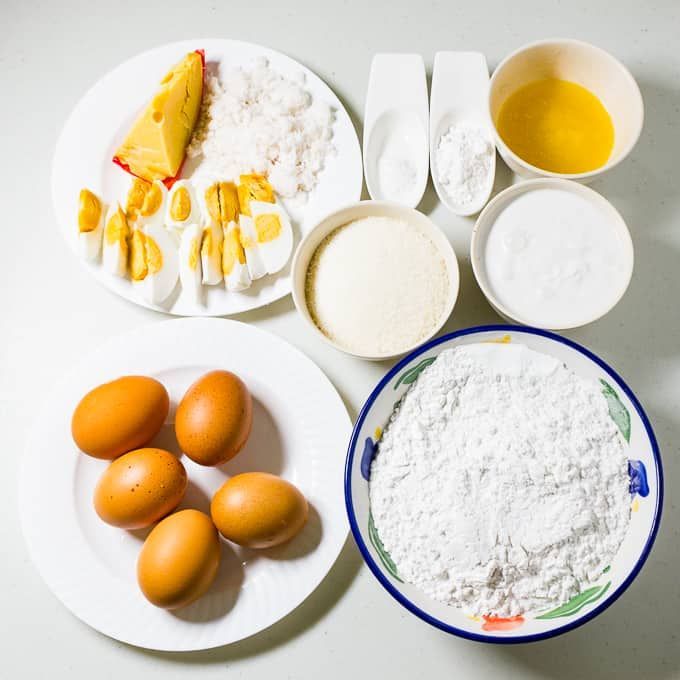
As we embark on our culinary adventure, it’s essential to familiarize ourselves with the key players in Laguna’s favorite delicacy. From the earthy aroma of rice flour to the rich flavors of coconut milk and the sweetness of sugar, each ingredient plays a crucial role in crafting this delectable dish. We’ll explore the regional variations that add a distinctive touch to this delicacy, making it a true representation of the province’s culinary identity.
Picture the bustling kitchens of Laguna, where skilled hands meticulously prepare it using time-honored methods. The step-by-step process involves a dance of tradition and technique, with traditional cooking tools adding a touch of authenticity to the culinary spectacle. Through vivid descriptions, we’ll bring the cooking process to life, inviting readers to imagine the sights, sounds, and enticing aromas that fill the air.
Types of Bibingka in Laguna
This Filipino treat is not a one-size-fits-all delicacy. There are variations as diverse as the province itself, each with its unique blend of ingredients and flavors. From the simplicity of the classic Bibingka to special types reserved for festive occasions, readers will discover the nuanced world of this Laguna’s famous culinary delight and the stories behind each mouthwatering variant. In this exploration, we will unravel the stories behind different types of this delicacy that grace the tables of Laguna, inviting us to savor the nuanced tapestry of this beloved Filipino treat.
1. Classic Bibingka
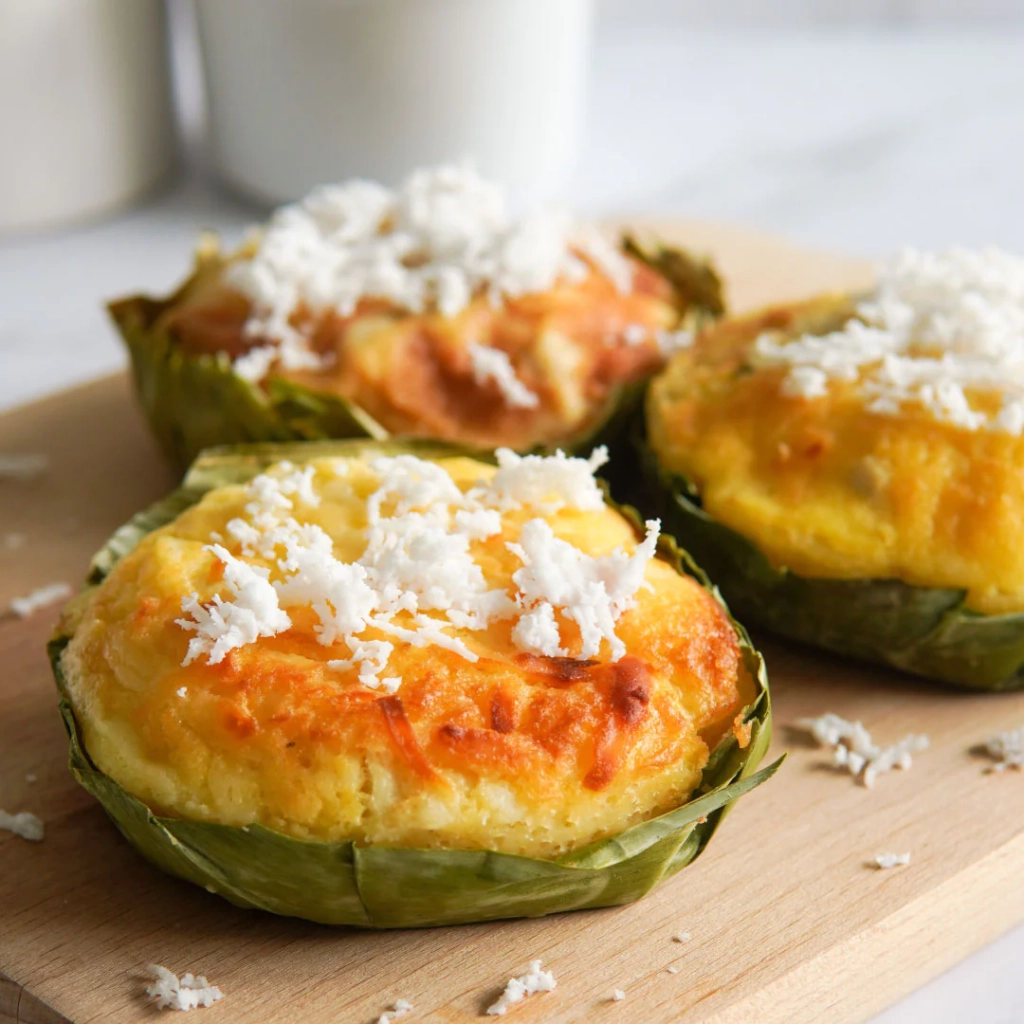
The cornerstone of Laguna’s toothsome delicacy repertoire is the timeless Classic Bibingka. This variant embodies the essence of tradition, featuring a base of rice flour and coconut milk, subtly sweetened and cooked to perfection. Baked in a traditional clay oven, the Classic Bibingka captures the authentic flavors that have been cherished for generations. Its simplicity serves as a delicious reminder of the roots from which Laguna’s delicacy legacy grew.
2. Bibingkang Malagkit
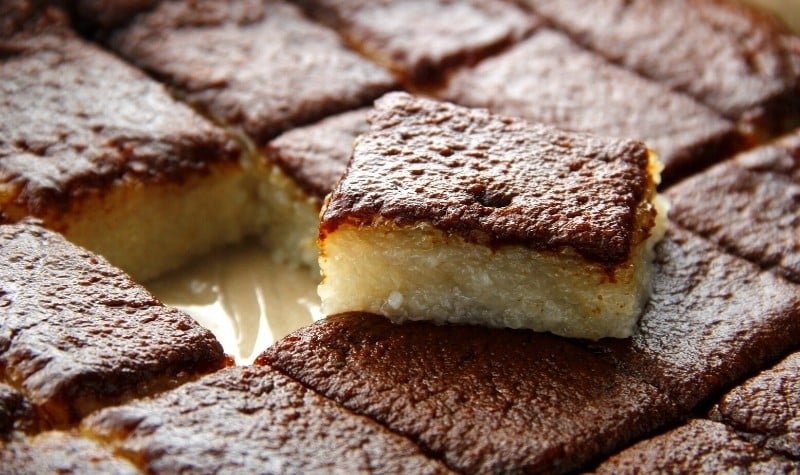
Elevating the Bibingka experience is the Bibingkang Malagkit, a sticky rice cake that offers a delightful departure from the conventional. Malagkit, or glutinous rice, forms the base, resulting in a chewier texture. Enhanced with coconut milk and often topped with a generous layer of grated coconut, this variant provides a decadent twist on the classic, making it a favorite during special occasions and festive gatherings.
3. Bibingkoy
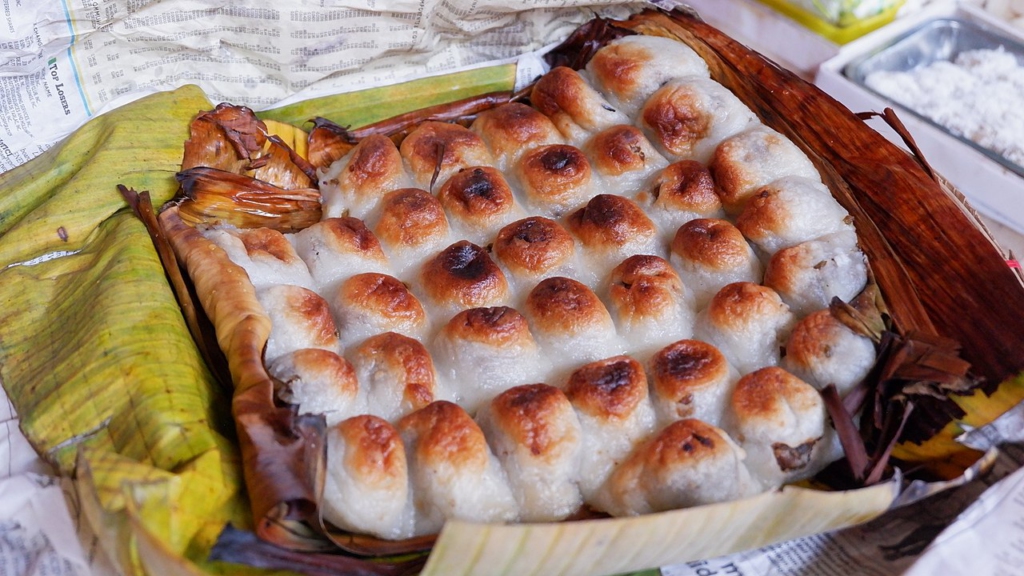
A unique jewel in Laguna’s repertoire is the Bibingkoy, a sweet concoction that features mung bean filling encased in glutinous rice dough. This delicacy takes the drooling experience to a whole new level with its combination of textures and flavors. Wrapped in banana leaves and steamed to perfection, the Bibingkoy stands as a testament to Laguna’s culinary ingenuity.
4. Bibingkang Galapong
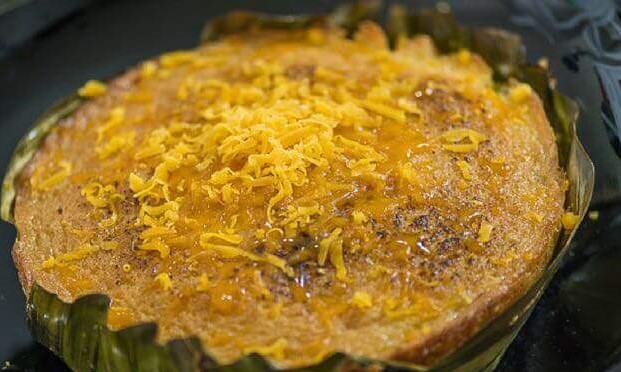
Introducing a variation in preparation, the Bibingkang Galapong is made from ground rice soaked overnight, resulting in a smoother batter. This variant offers a distinct texture and a slightly tangy flavor profile. Cooked in a similar fashion to its Classic style, the Bibingkang Galapong showcases the adaptability of Laguna’s culinary traditions while preserving the signature taste that defines this beloved Filipino dessert.
5. Bibingkang Abnoy
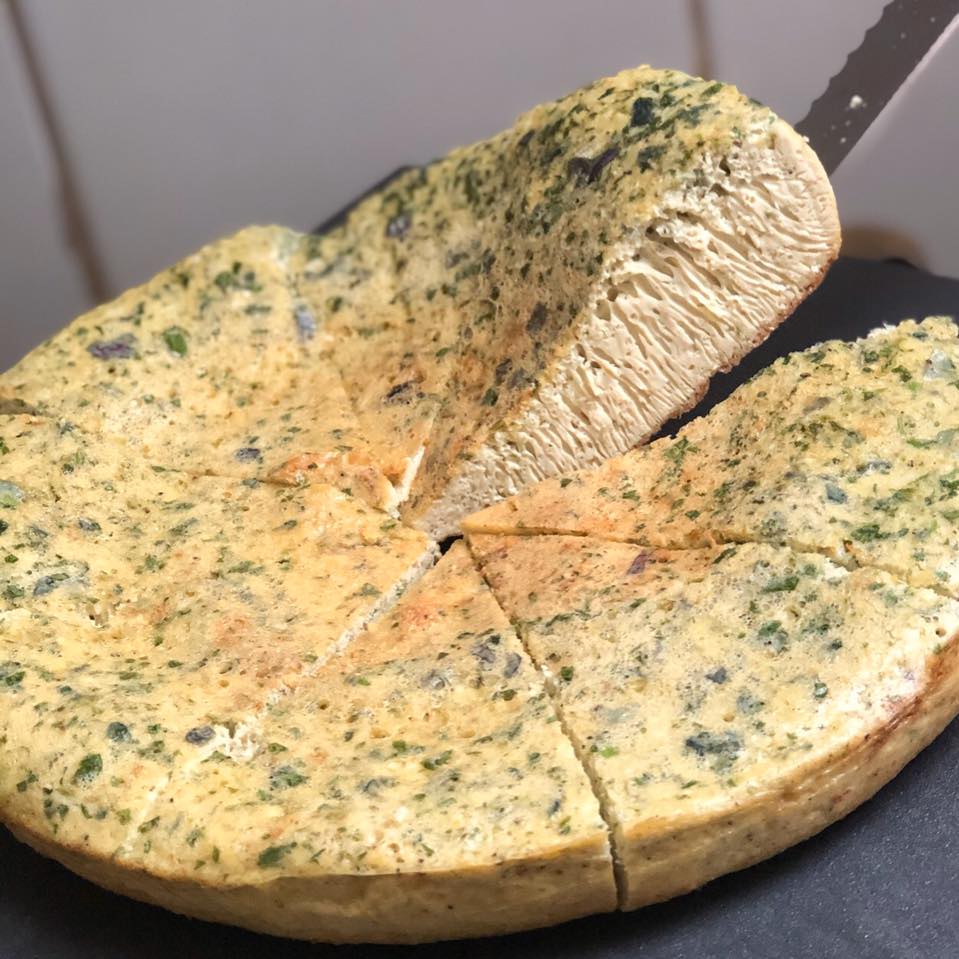
Adding a playful twist to this set of lineup is the Bibingkang Abnoy. This unconventional variant incorporates the use of fertilized duck eggs, locally known as “abnoy,” creating a unique flavor profile that balances sweetness with a hint of savory richness. The Bibingkang Abnoy challenges culinary norms, offering a daring and memorable experience for those willing to indulge in its distinctive taste.
6. Bibingkang Tinapay
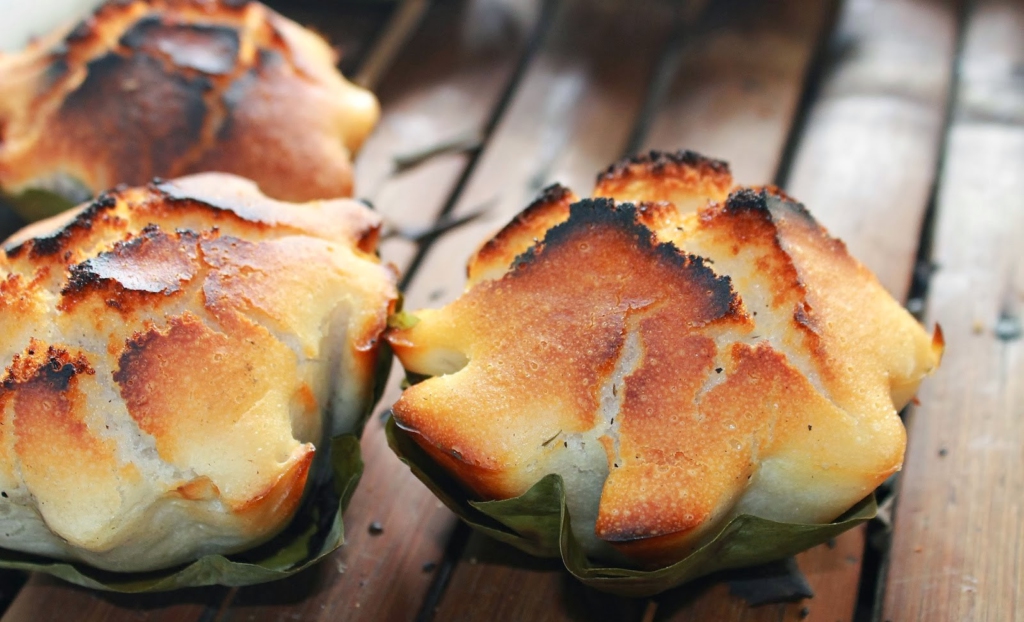
Infusing innovation into the traditional Bibingka repertoire, the Bibingkang Tinapay introduces bread into the mix. The combination of rice flour, coconut milk, and small bread chunks results in a delightful fusion of textures and flavors. Baked to golden perfection, this variant showcases the adaptability of this tantalizing treats recipes, demonstrating Laguna’s willingness to embrace creative culinary experimentation.
Local Influences
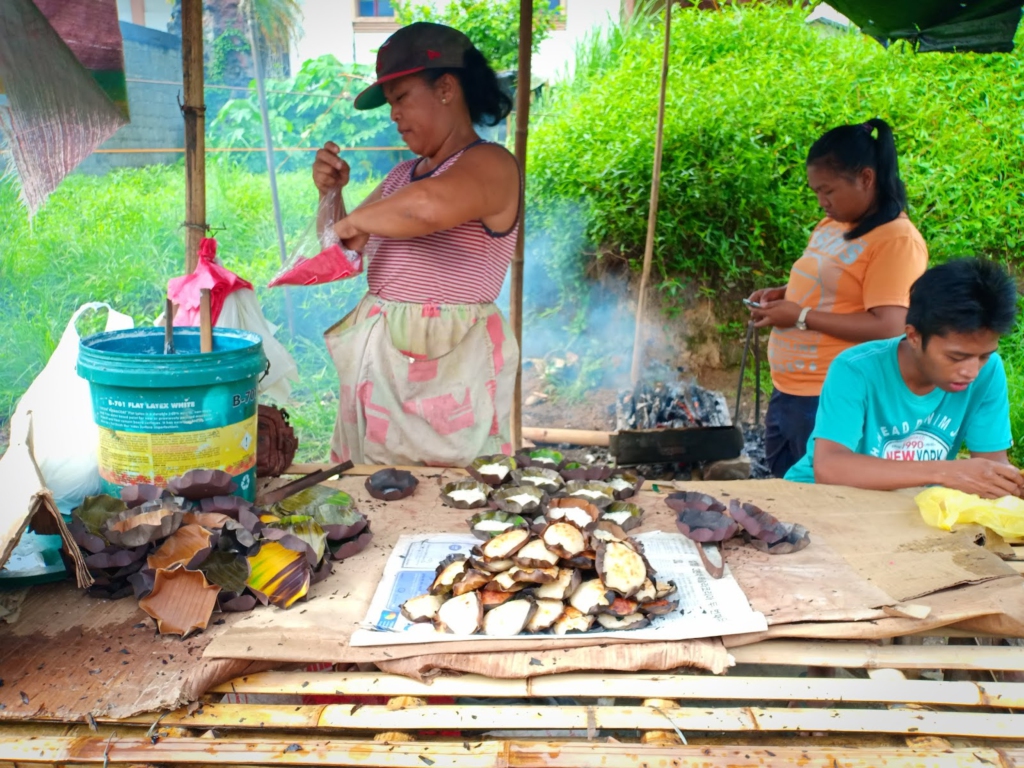
What distinguishes Laguna’s Bibingka from its counterparts in other regions is the infusion of local influences and cultural nuances that imbue this delicacy with a unique personality. The province’s culinary identity, shaped by its rich history and diverse cultural heritage, manifests itself in the meticulous choices made in crafting this Savory masterpiece. The selection of ingredients is a crucial aspect, with locally sourced rice flour, coconut milk, and sugar forming the backbone of this delectable treat. These ingredients not only reflect the agricultural bounty of the region but also ensure that each bite carries the authentic flavors that have been passed down through generations.
Furthermore, this Laguna’s rare treat stands out due to the distinctive cooking techniques employed in its preparation. Whether it’s the traditional clay ovens that harken back to ancestral times or the modern adaptations that blend innovation with tradition, the cooking process is a reflection of the community’s adaptability.
The methodical approach to achieving the perfect texture and flavor showcases a dedication to preserving the authenticity of Laguna’s culinary heritage. The artistic presentation often adorned with banana leaves and meticulously arranged toppings, adds another layer to its distinction, transforming it into a visual feast that mirrors the province’s aesthetic sensibilities. In essence, Laguna’s Bibingka is not just a dessert; it is a culinary masterpiece that encapsulates the spirit of a community deeply connected to its roots.
Significance in Celebrations
In Laguna, Bibingka is not just a dish; it’s a symbol of joy and celebration. From weddings to religious festivities, this humble treat takes center stage, becoming an integral part of communal gatherings. Uncover the role of this delicacy plays in these special occasions, as we explore the cultural significance that elevates it from a mere dessert to a cherished tradition.
1. Laguna’s Festivals
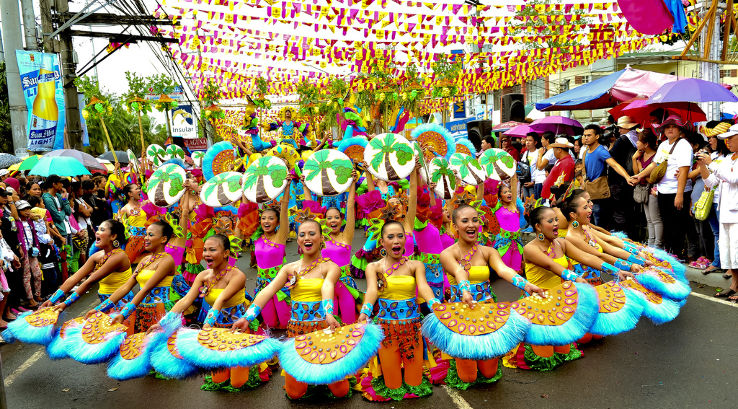
Laguna’s festivals, deeply ingrained in the province’s cultural identity, find a sweet companion in the form of Bibingka. During these sacred celebrations, the aroma of freshly baked rice cake permeates the air, invoking a sense of spiritual warmth and community. The act of sharing this delectable fare becomes a communal expression of gratitude and devotion, fostering a sense of togetherness among the faithful.
2. Christmas and Seasonal Celebrations
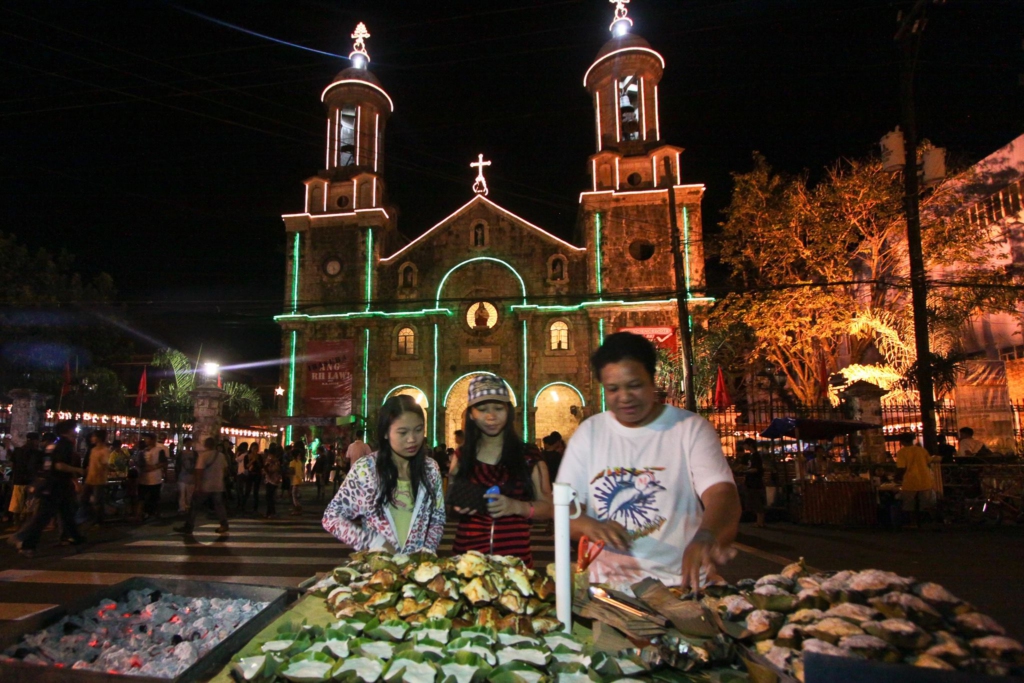
As the Christmas season approaches, the significance of rice cake in Laguna becomes even more pronounced. Traditionally associated with the Simbang Gabi (night masses) that precede Christmas, Bibingka becomes a staple on festive tables. The warmth of the season is mirrored in the comforting flavors of this rice cake, creating an ambiance of familial love and joy. This kind of rice cake presence during Christmas and other seasonal celebrations is a testament to its role in creating a sense of home and nostalgia.
3. Community Fiestas
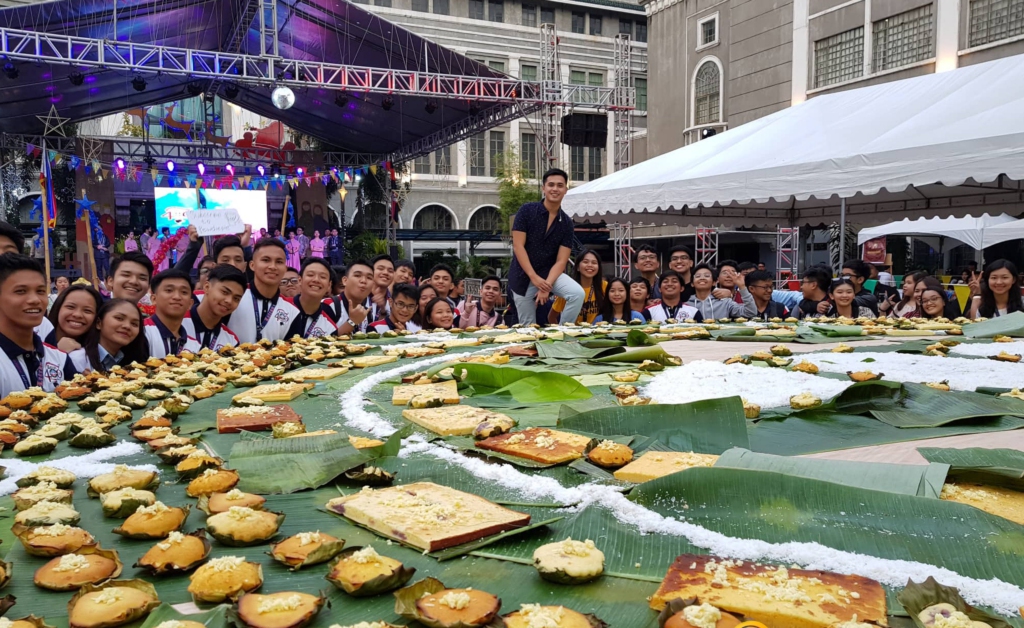
Community fiestas, vibrant expressions of local culture and camaraderie, provide the perfect backdrop for the significance of Bibingka. In the midst of lively festivities, this dainty delight becomes a communal treat, shared among neighbors and visitors alike. Its presence reinforces a sense of community spirit, creating lasting memories and reinforcing the bonds that unite the people of Laguna.
Popular Accompaniments
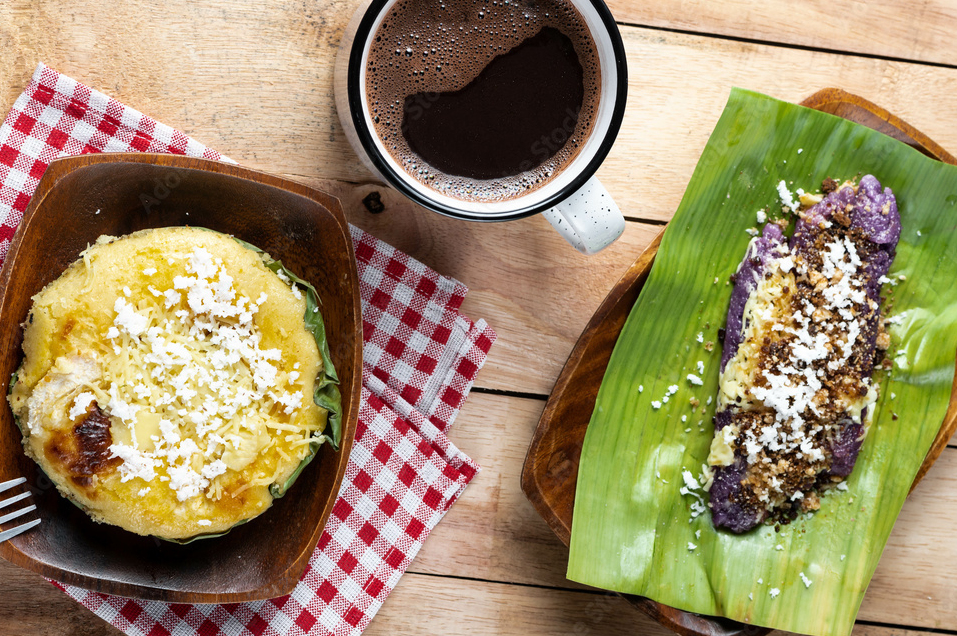
Bibingka, a traditional Filipino rice cake, holds a special place in the hearts of many for its unique flavor and delightful texture. To elevate the drooling experience, pairing it with its perfect companions, puto bumbong and a steaming cup of coffee, creates a symphony of flavors that tantalizes the taste buds. Puto bumbong, a purple-colored rice cake, complements the famous rice cake with its distinct taste and fluffy consistency.
The combination of these two Filipino favorites, along with a rich cup of coffee, is an exquisite trio that captures the essence of Filipino culinary heritage. The warm and comforting aroma of freshly baked bibingka, the sweet and earthy notes of puto bumbong, and the robust flavor of coffee blend seamlessly to create a delightful culinary experience that is cherished during festive occasions and everyday indulgences alike.
Local Artisans and Shops
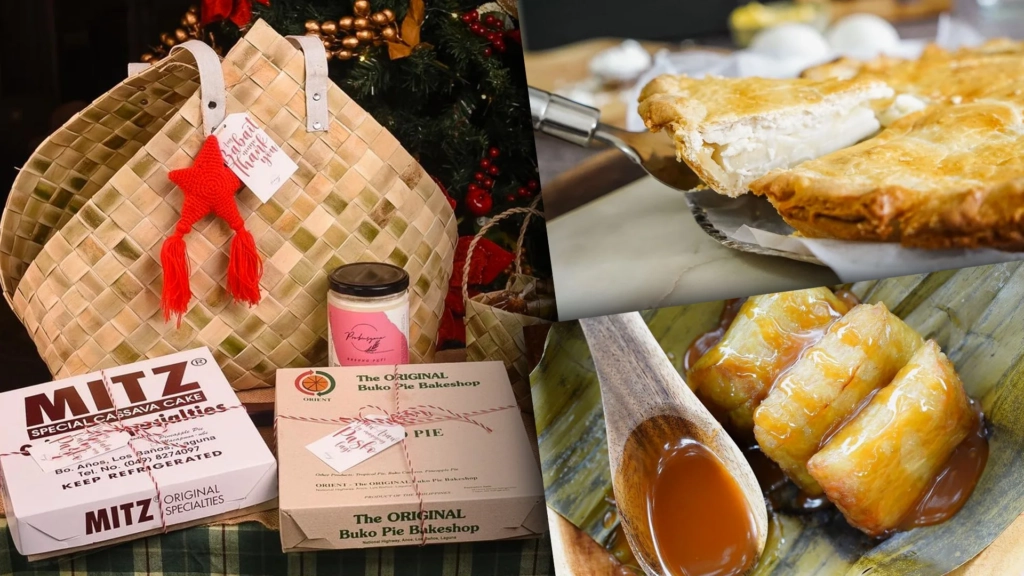
Embark on a journey to meet the dedicated artisans and rice cake makers who stand as the custodians of Laguna’s rich culinary heritage. These skilled individuals are not just bakers; they are storytellers, weaving tales of tradition and flavor through their meticulous craft. With a profound passion for preserving the essence of local culinary traditions, these artisans play a pivotal role in keeping Laguna’s culinary masterpiece legacy alive.
The commitment of these artisans goes beyond merely creating delectable treats; it encompasses a genuine love for the traditions that have shaped their community for centuries. With each batch carefully crafted, they breathe life into the recipes passed down through generations. Their hands, well-versed in the art of Bibingka-making, skillfully navigate the balance between preserving tradition and embracing the evolving tastes of a modern audience.
Tourism and Culinary Tourism
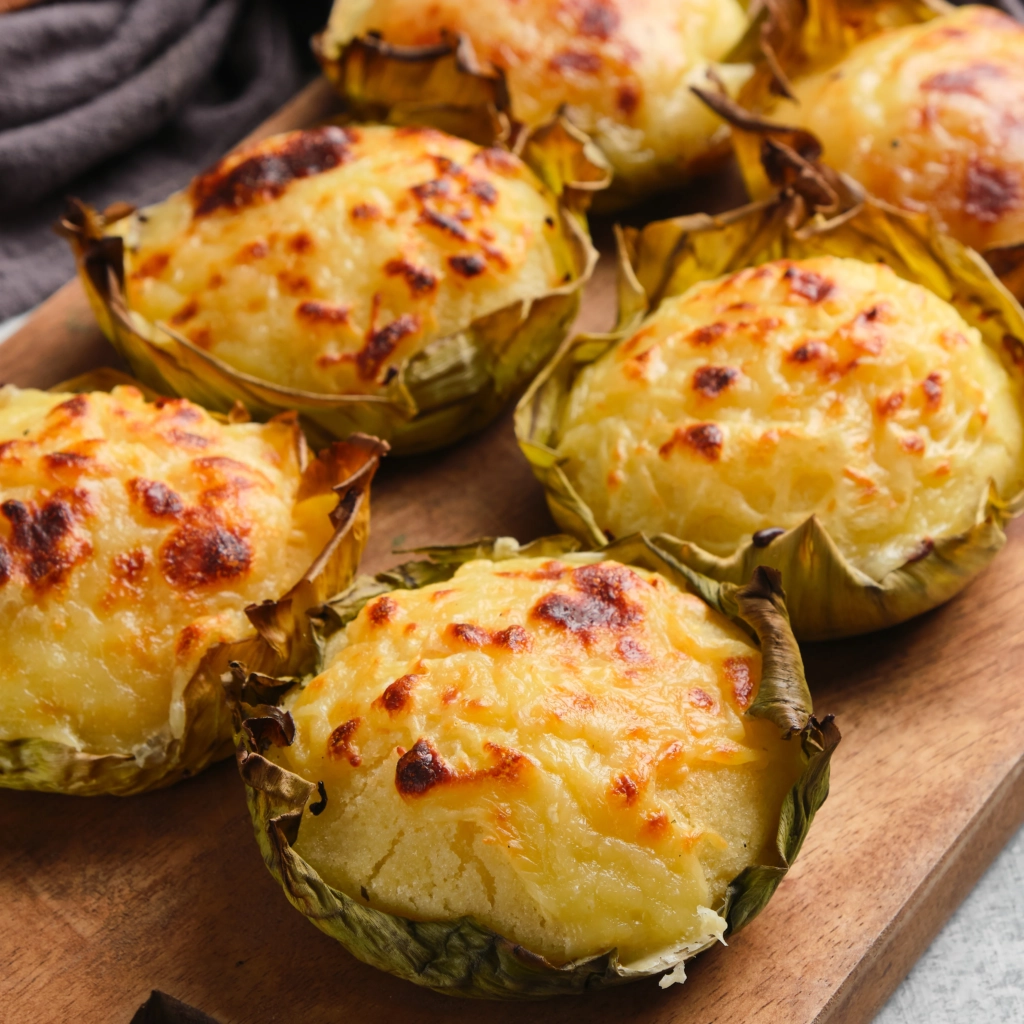
In the ever-evolving landscape of tourism and the burgeoning phenomenon of culinary exploration, Laguna’s Bibingka stands out as a star attraction, beckoning food enthusiasts and curious travelers to embark on a delightful journey. As culinary tourism gains momentum globally, the province of Laguna becomes a magnet for those seeking a sensorial adventure that goes beyond traditional sightseeing. The allure of Laguna’s tempting treat lies not only in its exquisite flavors but also in the rich stories woven into each delectable bite, making it a must-try for those looking to delve into the heart of Filipino gastronomy.
Culinary tours in Laguna have evolved into immersive experiences, offering travelers a chance to witness the intricate process of crafting Bibingka firsthand. These tours take participants through the vibrant local markets, where the freshest ingredients sourced directly from regional farmers set the stage for the culinary journey ahead. Expert guides share the nuances of choosing the finest rice flour, coconut milk, and other essential components, providing insights into the meticulous selection process that contributes to the authentic flavors of Laguna’s rice cake.
Challenges and Innovations
While tradition is at the heart of Laguna’s Bibingka, it’s not immune to the winds of change. Discover the challenges faced by traditional Bibingka makers and the innovative approaches they employ to meet evolving tastes and preferences. From sustainability practices to embracing technology, Laguna’s culinary artisans are navigating the delicate balance between preserving the past and embracing the future.
Laguna’s savory masterpiece is a testament to the province’s culinary diversity, where each variant tells a story of innovation, tradition, and local influences. Whether savoring the comforting simplicity of the Classic Bibingka, the sticky indulgence of Bibingkang Malagkit, or the playful experimentation of Bibingkang Abnoy, each type offers a unique lens through which to appreciate the dynamic flavors that define Laguna’s rice cake legacy. As we indulge in the diverse delights of these rice cakes, we not only savor the taste but also celebrate the rich cultural tapestry that has shaped the culinary identity of this enchanting province.
Conclusion
In the final chapter of our gastronomic journey through Laguna, we reflect on the timeless delight of Bibingka. As we bid farewell to the enchanting flavors and stories woven into this culinary masterpiece, we are left with a profound appreciation for the cultural richness that makes Laguna’s Bibingka not just a dish but a living, breathing tradition. Let us savor the flavors, celebrate the stories, and cherish the heritage that continues to thrive in every bite of Laguna’s Bibingka

